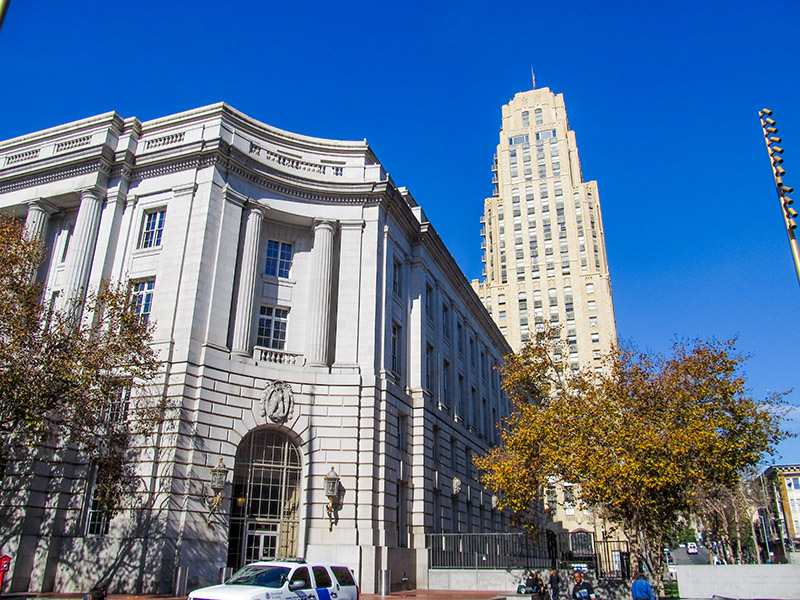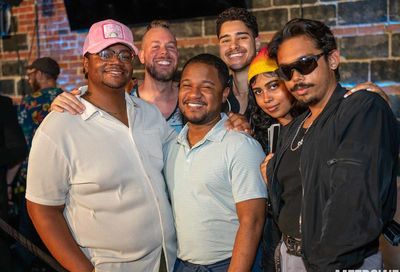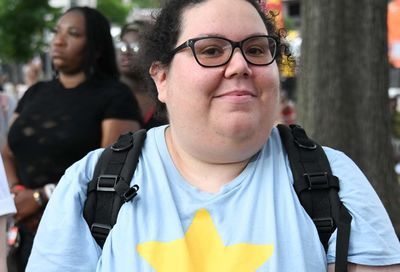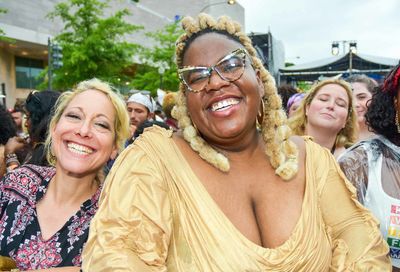Challenging Principals
Anti-gay actions may point to spike in institutional hostility toward gay teens since election
Minors may not be allowed to vote, but that certainly doesn’t allow them to live outside politics. According to a Dec. 9 press release issued by the national Lambda Legal Defense & Education Fund, hostility against gay teens has been on the rise since the Nov. 2 election.
“Concerned that gay youth are increasingly being denied their legal rights at school in the aftermath of last month’s election, Lambda Legal said today that it is expanding its ongoing campaign on youth rights so communities where students have faced anti-gay hostility in recent weeks,” the release reads.
The Lambda release points specifically to incidents in Alabama, Iowa, Missouri, Texas and Utah. Utah was one of the 11 states that voted Nov. 2 to amend the state’s constitution to prohibit same-sex marriages.
In Utah, Lambda Legal is decrying a new policy in Salt Lake City-area high school requiring students to get written permission from their parents if they plan to attend a school dance with a same-sex date.
Of the states mentioned, Alabama’s legislative attempt to prohibit the use of public funds to purchase school texts or library materials “that recognize or promote homosexuality as an acceptable lifestyle” may have grabbed the most headlines. The ban would also prohibit classroom speakers who may suggest it’s OK to be gay.
Alabama’s anti-gay statewide push is similar to a local effort in Pleasant Valley, Iowa, where the school board passed a passed a policy prohibiting teachers from reading a book to their classes with a gay character. The policy followed one teacher’s tradition of reading James Howe’s The Misfits to classes in an effort to prevent name-calling.
The Missouri trouble centers around a gay student punished for wearing T-shirts advocating gay pride, while other students brandish anti-gay messages with impunity. The American Civil Liberties Union has filed a federal lawsuit on the gay student’s behalf.
In Texas, the state’s education board demanded that health texts for middle and high school students be changed to explicitly define marriage as a one woman-one man institution.
Michael Adams, Lambda Legal’s director of education and public affairs, grants that it’s impossible to directly link the election to hostility toward gay youth, but says it’s equally impossible to ignore the possibility.
“There’s no way of know [if there is a connection] for sure, but we’ve seen an uptick in hostility in the last few weeks,” Adams warns. “One of the things we’re concerned about is that in the aftermath of the election there is more critical focus on gay people and gay rights. We regularly get calls from LGBT students with different kinds of problems at school, but it’s unusual to get such a significant increase in such a short period of time.”
While Lambda Legal has noted five instances of hostility to gay youth around the country, the national Gay, Lesbian and Straight Education Network (GLSEN) is taking interest in a case closer to D.C. In Harrisonburg, Va., roughly 150 miles southwest of Washington, the school board voted unanimously Dec. 7 to require students wishing to join any student club to get their parents’ permission. The new policy follows Harrisonburg students’ creation of a Gay-Straight Alliance club. According to GLSEN, some Harrisonburg parents objected to the club.
“The courts have ruled decisively that GSAs must be treated the same as any other club,” said GLSEN Executive Director Kevin Jennings, in a Dec. 8 release. “Unable to use the law to advance their ideological opposition to the laudable efforts of the GSA students to combat bigotry at Harrison High, the board has chosen instead to erect barriers to participation in school life that hurt all students.”
Craig Bowman, executive director of the D.C.-based National Youth Advocacy Coalition, says these cases are examples of social conservatives’ attempt to turn the tide on people coming out at younger ages.
“They want to stop it,” says Bowman, explaining that the coming-out process can be a very political statement. “That’s what abstinence-only [sex education] is all about. They don’t want to deal with the issues young people deal with day to day.”
Jennings set the tone of GLSEN’s interest in the current political climate immediately following the Nov. 2 election with an open letter.
“I watched the election returns with growing dismay as candidates who stood for greater inclusion of LGBT people went down to defeat and discriminatory ballot measures won, often by outrageous margins,” Jennings wrote Nov. 3. “As an educator and activist who has devoted nearly 20 years of my life to ensuring safe schools for all students, particularly those who are perceived to be LGBT, I am concerned for not only what this may mean for these students, but what this could mean for our education system over the next four years.”
Adams concludes, “The reality is one thing coming out of the election is that the opposition to equality for gay people feels emboldened. LGBT students are not an especially powerful group, politically. And the school districts are an area where the right has focused attention for years.”
Bowman agrees that the right has focused on school districts and stresses that that is where the GLBT community should confront them. “They recognize that all politics is local,” he says. “It does require all of us to pay attention to organizing, to make sure our voices are at those table as well. We need to be on school boards, on city councils, because we’re in those places. LGBT people are everywhere.”
Support Metro Weekly’s Journalism
These are challenging times for news organizations. And yet it’s crucial we stay active and provide vital resources and information to both our local readers and the world. So won’t you please take a moment and consider supporting Metro Weekly with a membership? For as little as $5 a month, you can help ensure Metro Weekly magazine and MetroWeekly.com remain free, viable resources as we provide the best, most diverse, culturally-resonant LGBTQ coverage in both the D.C. region and around the world. Memberships come with exclusive perks and discounts, your own personal digital delivery of each week’s magazine (and an archive), access to our Member's Lounge when it launches this fall, and exclusive members-only items like Metro Weekly Membership Mugs and Tote Bags! Check out all our membership levels here and please join us today!



























